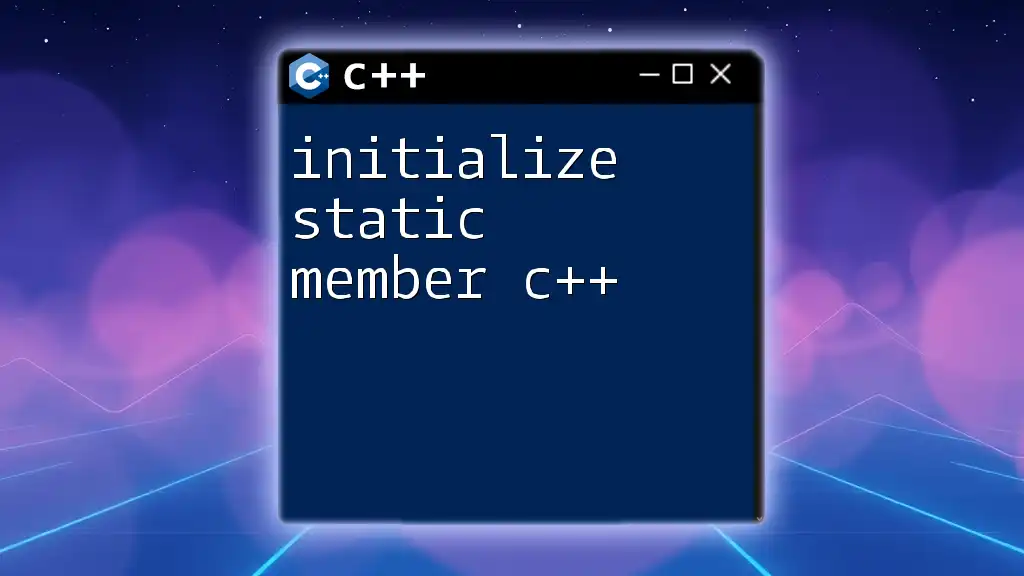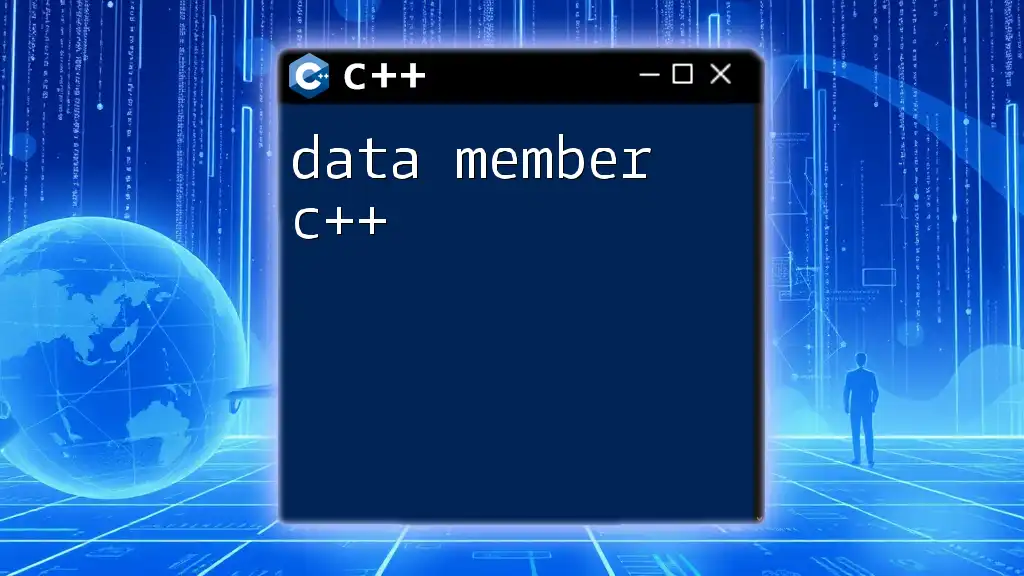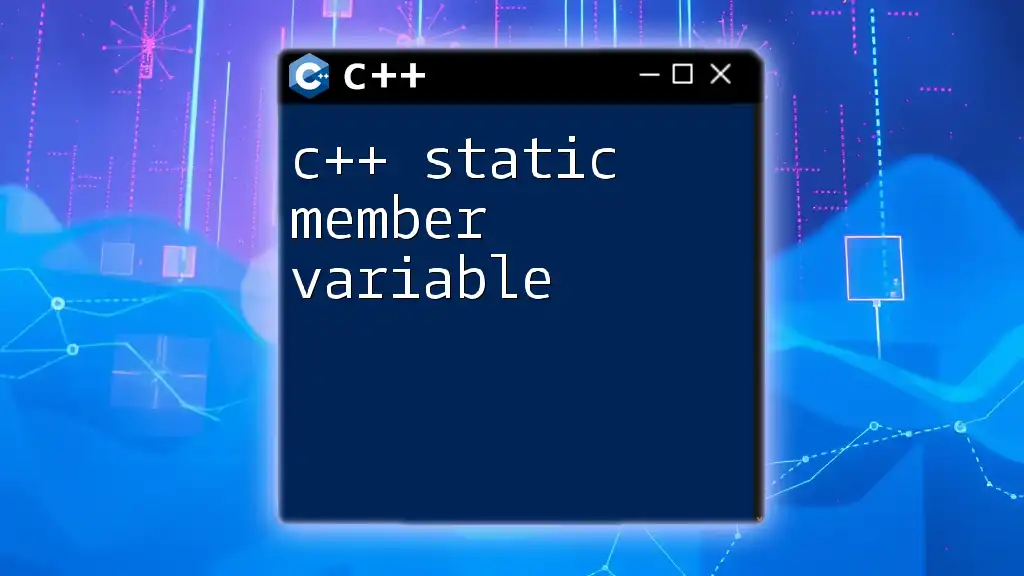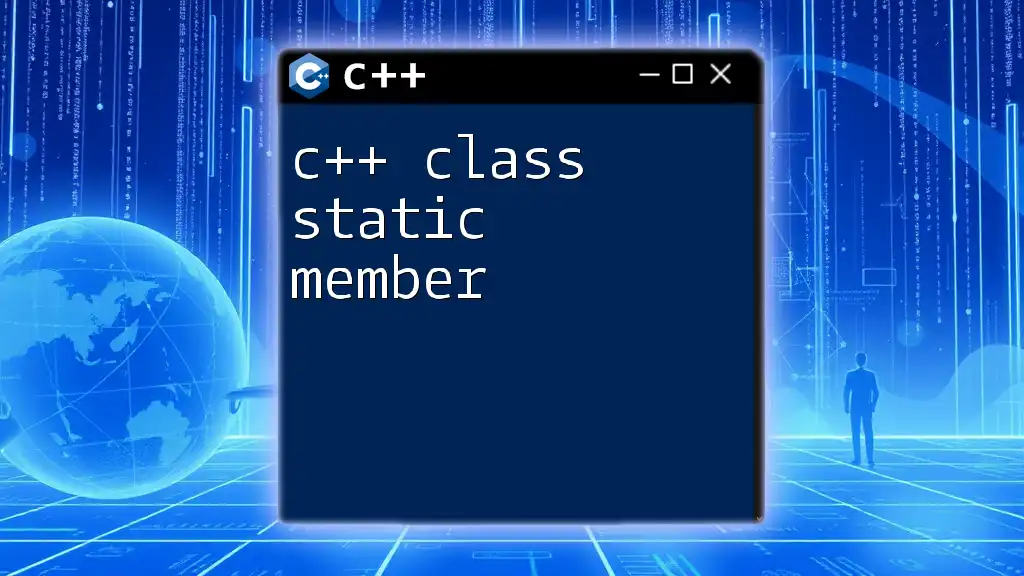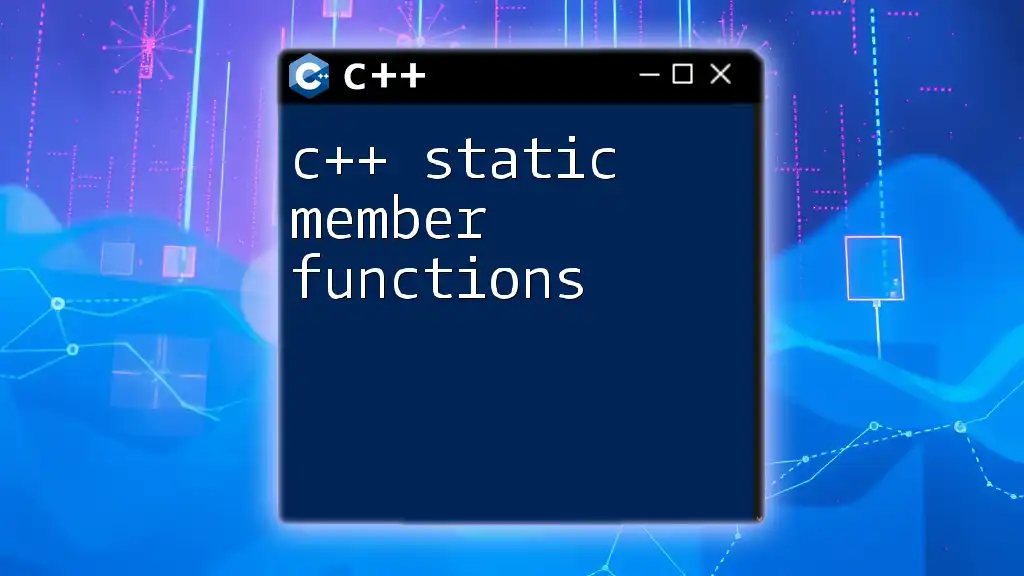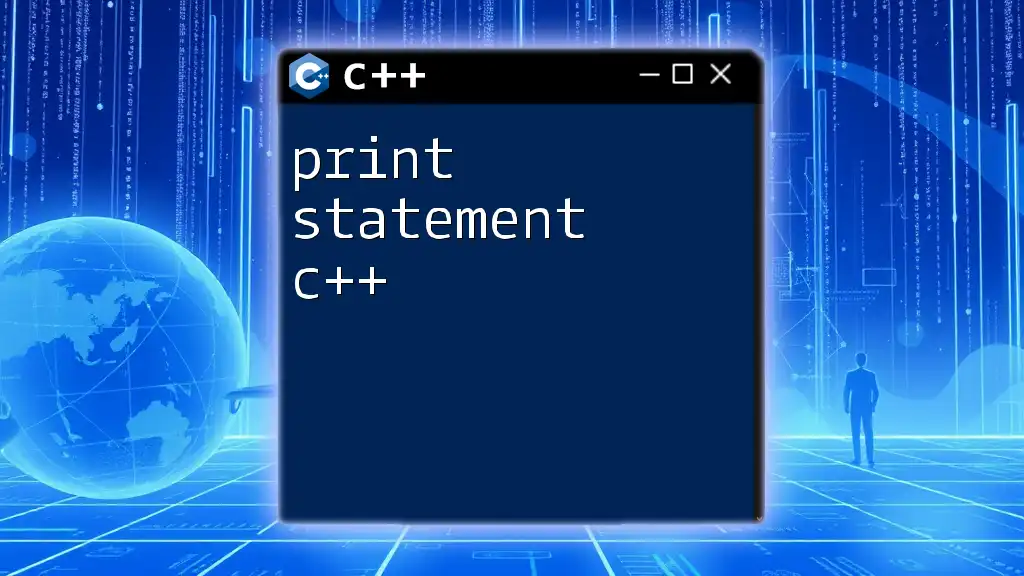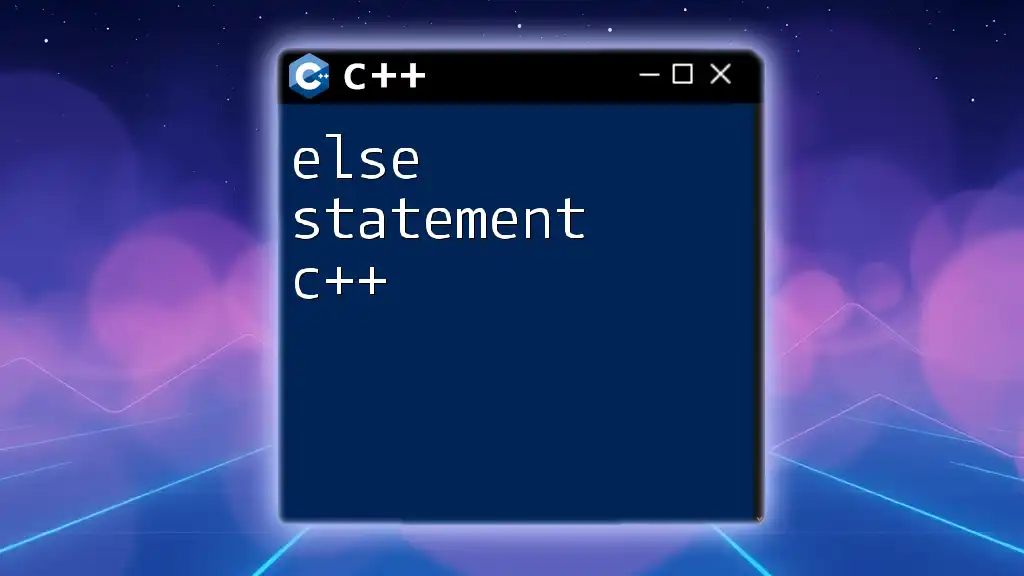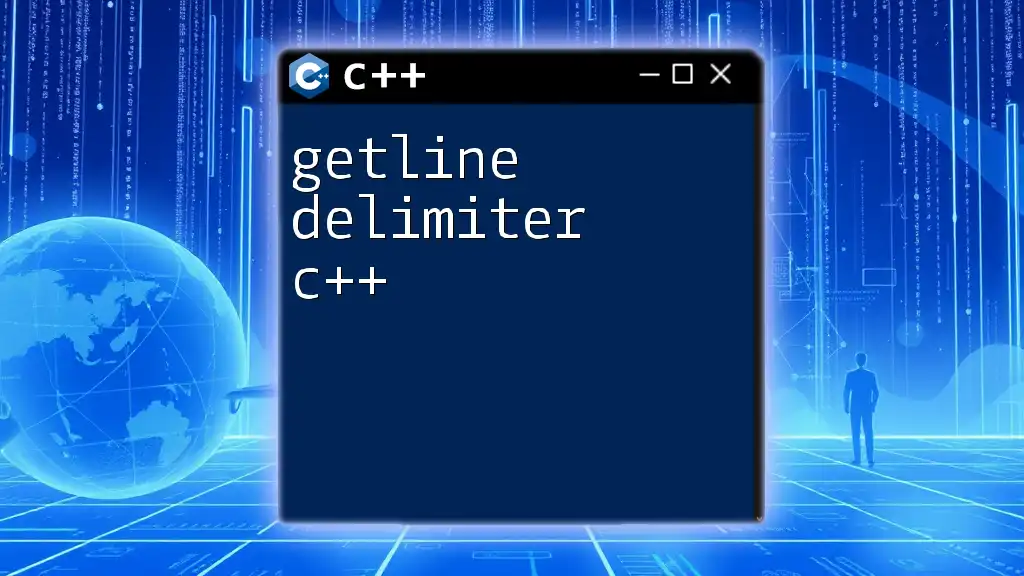In C++, static member variables need to be initialized outside the class definition, typically in a source file, to ensure they have a single instance shared across all instances of the class.
Here's a code snippet demonstrating this:
#include <iostream>
class MyClass {
public:
static int staticVar; // Declaration of static member
};
// Initialization of static member outside the class
int MyClass::staticVar = 5;
int main() {
std::cout << "Static Variable: " << MyClass::staticVar << std::endl;
return 0;
}
What is a Static Member in C++?
In C++, a static member is a class member that is shared across all instances of the class. Unlike non-static members, which belong to individual objects, static members are associated with the class itself. This means that you can access them without creating an instance of the class.
Differences Between Static and Non-static Members
- Memory Allocation: A static member is allocated memory only once, no matter how many instances of the class are created. In contrast, each instance of a non-static member has its own allocation.
- Access: Static members can be accessed using the class name, while non-static members require an object of the class.
Key Point: Remember that static members provide a mechanism for sharing data between instances.
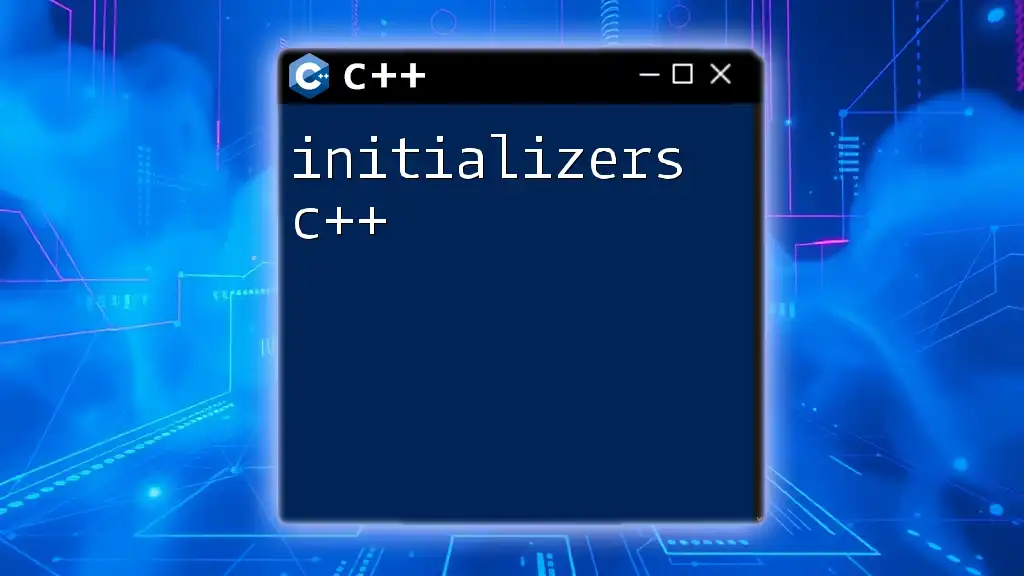
Why Initialize Static Members?
Initializing static members is critical for several reasons:
- Avoiding Undefined Behavior: If you don’t initialize static members, they may contain garbage values, leading to unpredictable behavior in your program.
- Ensuring Consistent Initial State: Proper initialization allows you to control the starting state of your static variable across all instances of your class.
For instance, imagine a logging class where you use a static member to keep a count of log entries. If it's uninitialized, your applications could read unexpected values.
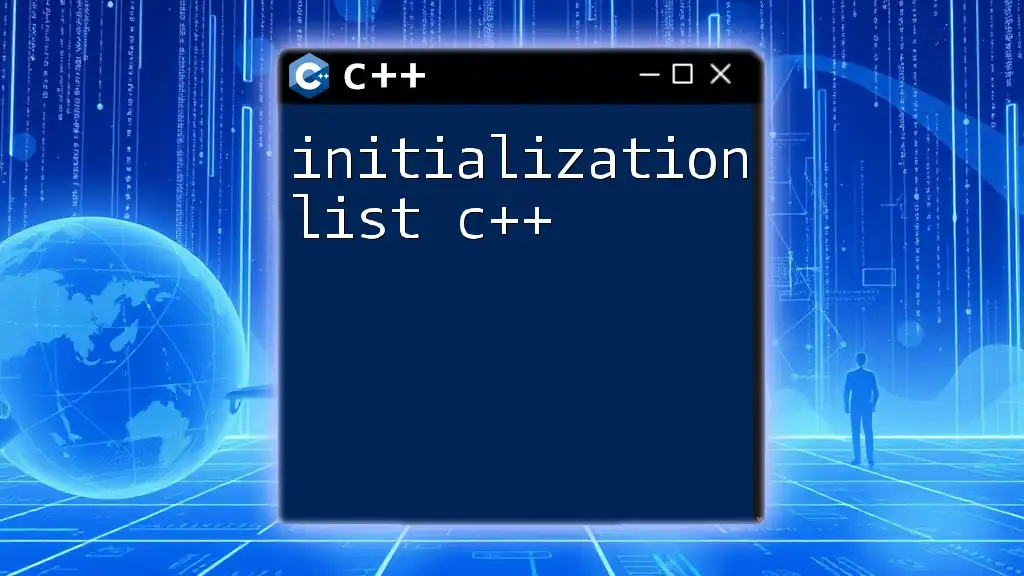
How to Declare a Static Member
Declaring a static member in C++ is straightforward. You can declare a static member variable within the class, as shown below:
class MyClass {
public:
static int staticVariable; // Declaration
};
This line declares a static member `staticVariable` of type `int`. However, it is essential to provide a definition for this member outside of the class.
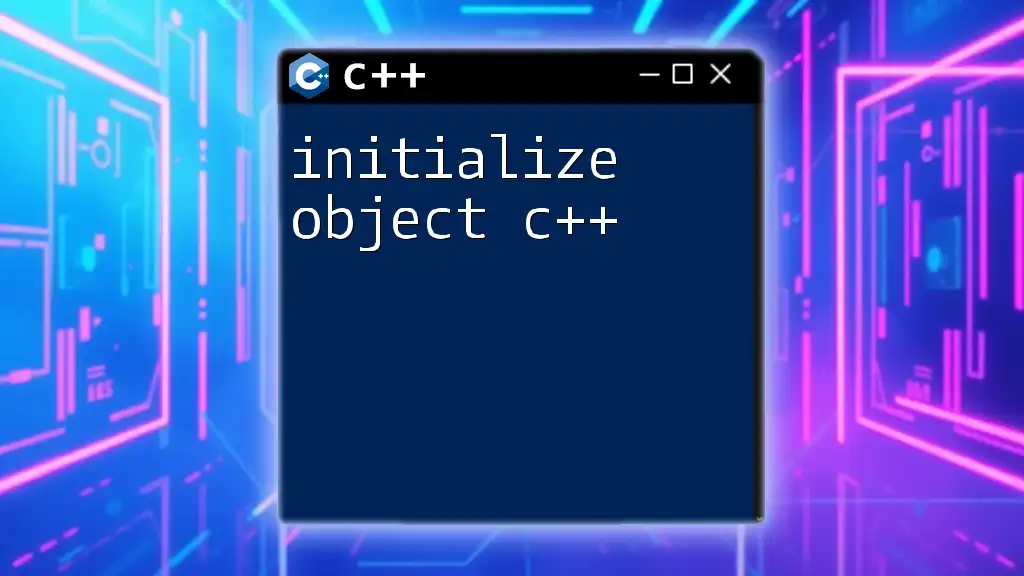
C++ Static Member Initialization: The Basics
Inline Initialization
C++ allows you to initialize static members directly during their declaration. This is known as inline initialization.
class MyClass {
public:
static int staticVariable = 5; // Inline initialization
};
Here, `staticVariable` is initialized to `5`. Inline initialization is convenient, but it can be used only for static members defined in the class declaration.
Out-of-Class Initialization
You can also initialize static members outside of the class definition. This is commonly done when the variable needs complex initialization.
int MyClass::staticVariable = 10; // Out-of-class initialization
In this example, `staticVariable` is defined and initialized in the global scope. This is necessary for static members as the declaration and definition are separate.

Best Practices for Initializing Static Members
Choose the Right Initialization Method
The choice between inline and out-of-class initialization largely depends on your needs:
- Use inline initialization for simple types or constants.
- Opt for out-of-class initialization when dealing with complex data types or when you want to keep the class definition cleaner.
Documentation
Always document the purpose of your static members. This practice enhances code readability and maintainability, especially in larger projects. Comment your static members to clarify their use cases.
Thread Safety Considerations
If your static member is accessed by multiple threads, you must consider thread safety. Static members should be initialized in a thread-safe manner, which may involve using mutexes or other locking mechanisms to prevent race conditions.

Common Pitfalls in Static Member Initialization
Forgetting to Initialize
Forgetting to initialize static members can lead to unpredictable behavior. For instance:
class MyClass {
public:
static int staticVariable; // Declaration only
void show() {
cout << staticVariable; // Undefined behavior if not initialized
}
};
If `show` is called before `staticVariable` is initialized, it may print a garbage value.
Using Static Members Before Initialization
Static members must be initialized before they are accessed. The following example illustrates this problem:
class MyClass {
public:
static int staticVariable;
void show() {
cout << staticVariable; // Must be initialized first
}
};
int MyClass::staticVariable; // Needs actual initialization
In this scenario, calling `show()` will result in undefined behavior unless `staticVariable` is properly initialized beforehand.
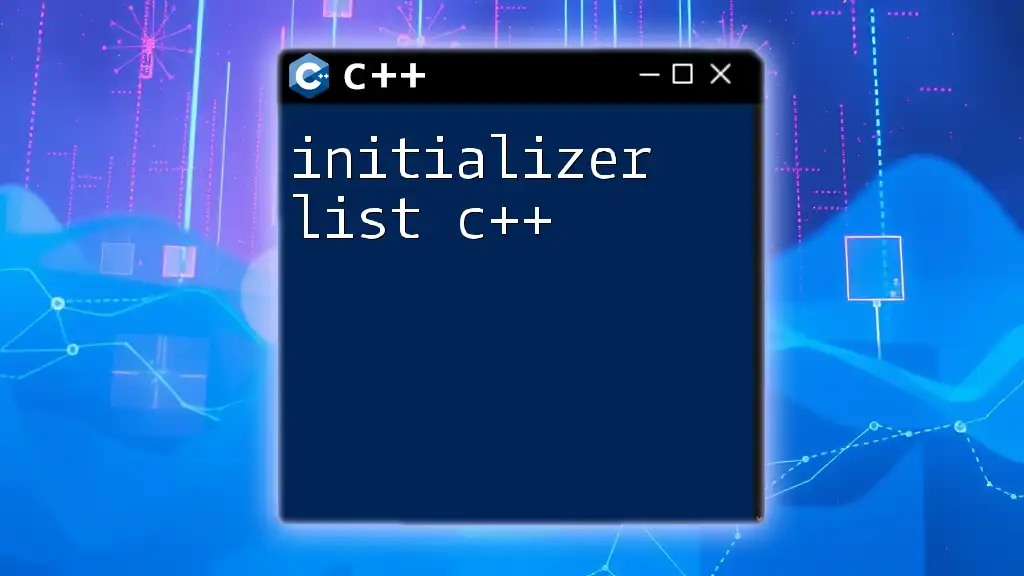
Accessing Static Members
Static members can be accessed from both static and non-static functions. This flexibility makes them a powerful tool in class design.
class MyClass {
public:
static int staticVariable;
static void setStatic(int value) {
staticVariable = value; // Access in static method
}
void show() {
cout << staticVariable; // Access in non-static method
}
};
// Define and initialize the static member
int MyClass::staticVariable = 0;
In this example, both the static method `setStatic` and the non-static method `show` can access `staticVariable`.

Use Cases for Static Members
Static members are particularly advantageous in several scenarios:
- Singleton Pattern Implementation: Static members can help ensure that a class has only one instance.
- Configuration Settings or Constants: Static members can hold global application settings that all instances share.
For example, a singleton pattern can be represented as follows:
class Singleton {
private:
static Singleton* instance; // Static member to hold the single instance
// Private constructor to prevent instantiation
Singleton() {}
public:
static Singleton* getInstance() {
if (instance == nullptr) {
instance = new Singleton(); // Instantiate if not yet done
}
return instance;
}
};
// Initialize the static member
Singleton* Singleton::instance = nullptr;
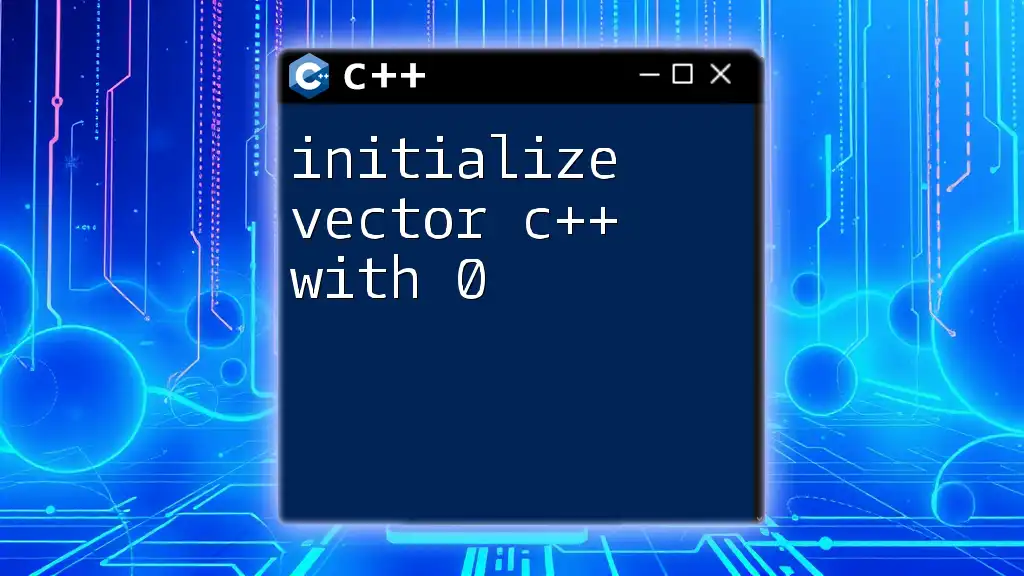
Conclusion
Understanding how to initialize static members in C++ is essential for writing robust and reliable software. Proper initialization avoids undefined behavior and ensures a consistent state shared across instances. Remember to choose the right initialization method, document your code, and address thread-safety concerns for static members.
As you continue your journey with C++, practice using the examples and tips provided in this article to enhance your skills. Static members have broad applications, and mastering them will significantly benefit your programming prowess.

